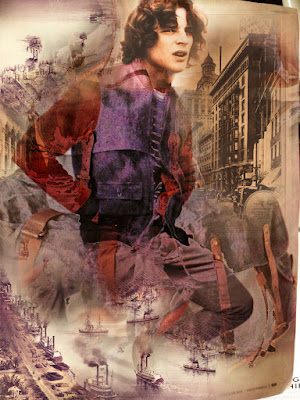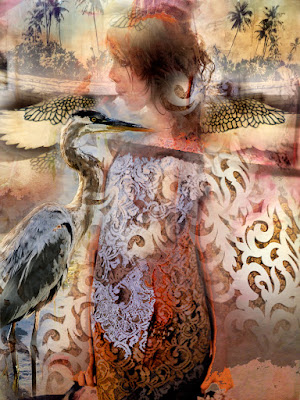This goes out to all you haters out there
Actin’ like a brother done did somethin’ wrong
’Cause he got his game tight!
After last week’s trivia competition, I know EXACTLY what Ice-T was talkin’ about!
‘Cause some of my team’s rivals was actin’ like a brother done did somethin’ wrong . . . just because he got his trivia game tight!
* * * * *
Team Dynamite! – my Tuesday-night trivia team – has been suffering through a long dry spell, but we finally got off the schneid and won convincingly this week.
We dominated the weekly Pourhouse Trivia competitions at Smoketown Creekside in December and January, finishing on top seven times in nine weeks.
But until this week, our most recent first-place finish had been on February 2. And unlike Bill Murray in the Groundhog Day movie, we didn’t get trapped in a time loop that caused us to relive our February 2 experience over and over and over. Our experience was just the opposite: we went weeks – months, really – without reliving the thrill of victory.
* * * * *
Some believed Dynamite! had fallen victim to “The Curse of the Rubber Stamp.”
Earlier this year, I ordered a “Dynamite!” rubber stamp to use on our answer slips. (You have to fill out and turn in 21 such answer slips during each contest, and it gets very tedious to handwrite “Dynamite” 21 times every week – I figured a rubber stamp would make that task a lot easier.)
Some viewed this as an act of hubris, the ancient Greek term for an extreme and unreasonable feeling of pride and overconfidence. The Greeks believed that the gods would punish someone who was guilty of hubris, and there were those on the team who were convinced that was the reason Dynamite! had never won a game in which I had used my rubber stamp.
* * * * *
The infamous “Curse of the Bambino” ended when the Boston Red Sox won the 2004 World Series and ended the team’s 86-year-long championship drought. (It still grieves me deeply to read that sentence.)
Well, if there was a “Curse of the Rubber Stamp,” it lost its grip on Dynamite! this week when our team cruised to a convincing victory over 19 other teams – including our two most bitter rivals.
But the victory was not without controversy. When I walked up to collect our team’s prize, the game’s host told me that there had been allegations by some of the whiny b*tches that we had beaten like a rented mule that night that Dynamite! had not won fair and square.
Specifically, those LOSERS had complained to him that our team had used more than seven players – seven being the maximum number of players a team can have under Pourhouse Trivia’s rules.
* * * * *
Unlike “Deflategate,” the “Triviagate” controversy can be understood without knowledge of the Ideal Gas Law.
Suffice it to say that I sit at the bar during trivia – not at a table, like most teams – because I play with the bartenders, and it would be impossible for me to communicate with the bartenders as they worked if I sat at a table instead of at the bar.
It’s easy to see how many players are on a team that’s sitting at a table. But at the bar, people are constantly coming and going.
The reason why some of our trivia rivals believe we have more than seven players results from the fact that there’s a cornhole tournament each week in an adjacent room.
I’ve become friendly with many of the cornhole crowd. One of our Dynamite! regulars is the wife of a cornhole competitor, and a couple of our occasional participants are cornholers who join us once they are eliminated from the cornhole competition.
But there is a constant stream of cornhole kibitzers coming and going by our players because we sit near the location where they come to pick up their beers and settle their tabs. “Are you winning?” someone may say as he waits for an IPA. “What was the answer to question X?” another one may ask, referring to a question that he heard asked ten minutes earlier.
It’s all perfectly innocent – believe you me, I know exactly who is contributing to Dynamite! by suggesting answers to me, and I make sure that no more than seven people are participating on any given Tuesday.
But consistent winners in any sport – e.g., the New York Yankees and New England Patriots – often find themselves envied. And the same is true of Dynamite!
As the 19th-century French author Victor Hugo once wrote: “The wicked envy and hate; it is their way of admiring.”
Hugo wasn’t writing about the petty people who accused Dynamite! of cheating. But he could have been.
* * * * *
One way for the members of Dynamite! to express our opinion of those who have unjustly accused us of cheating would be to change our team name and order t-shirts with the new team name printed on them.
The photos that appear throughout this post show some of the potential new team names that we seriously considered.
I was tempted to quote Hank Hill’s high-school football coach – you can click here to hear what that coach used to say when Hank’s team was losing at halftime – but it was too long to fit on a t-shirt.
So I decided that the best choice would be something that former major-league pitcher Joey Eischen once said about Baltimore Orioles owner Peter Angelos.
You see, when the Montreal Expos moved to our nation’s capital and became the Washington Nationals in 2005, Angelos was not happy. That’s because the stadiums where the Nationals and the Orioles play are less than an hour’s drive apart, and Angelos feared that his train-wreck Orioles team was going to suffer at the box office once there was another baseball team in the area.
When Eischen – who was then a pitcher for the Nationals – heard that Angelos was unhappy, he noted that the Nationals were in Washington to stay, and told the Baltimore owner to get over himself in these well-chosen words:
HE’S GOING TO HAVE TO SUCK ON IT AND LIKE IT!
I think that expresses my feelings about the teams who whined that Dynamite! was cheating rather nicely:
* * * * *
Ice-T has been a regular on Law & Order: Special Victims Unit for years, does TV commercials for Geico and others, and recently competed on The Masked Dancer.
But back in the day he was a pimp, a bank robber, and a gangsta rapper whose song “Cop Killer” was widely condemned thanks to lyrics like these:
I got my twelve-gauge sawed-off
I got my headlights turned off
I'm ’bout to bust some shots off
I'm ’bout to dust some cops off
I'm a COP KILLER!
“Don’t Hate the Playa” was released in 1999 on Ice-T’s seventh studio album, The Seventh Deadly Sin.
Click here to listen to “Don’t Hate the Playa.”
Click on the link below to buy this track on Amazon:




















.jpg)











